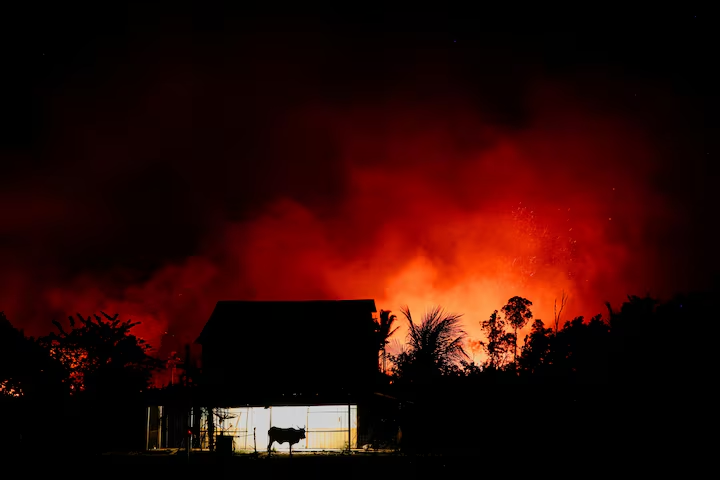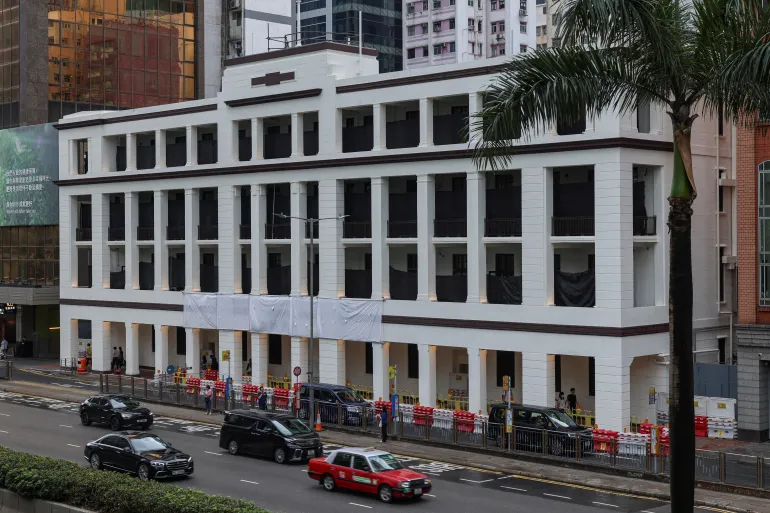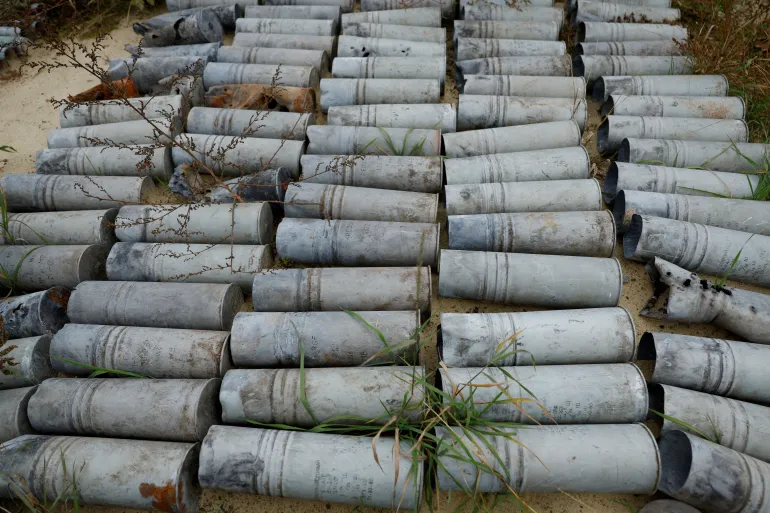Massive wildfires in the Brazilian Amazon were the leading cause of a devastating spike in global forest loss in 2024, according to a new report published on Wednesday, May 21, 2025, by the World Resources Institute (WRI) and the University of Maryland. The data reveals that over 4 million hectares of primary rainforest were destroyed in Brazil alone, marking the worst year for Amazon deforestation since monitoring began.
The destruction in the Amazon accounted for nearly half of all global tropical primary forest loss last year. Researchers say most of the damage was driven by illegal land clearing and out-of-control fires, exacerbated by prolonged drought conditions and weak environmental enforcement.
“What we’re seeing is the collapse of forest protections on a historic scale,” said Frances Seymour, a senior fellow at WRI. “It’s not just bad for biodiversity and Indigenous communities — it’s a massive blow to the global climate fight.”
Global Forest Loss Surges
Globally, the world lost approximately 9.1 million hectares of tree cover in 2024, up 24% from the previous year. Aside from Brazil, forest fires and deforestation surged in Bolivia, Colombia, the Democratic Republic of Congo (DRC), and parts of Southeast Asia.
In Bolivia, fire-driven deforestation more than doubled compared to 2023. In the DRC, forest loss was largely due to expanding agriculture and wood fuel harvesting. The report warns that if trends continue, many tropical forests could approach ecological tipping points, where they lose the ability to regenerate.
Brazil in Focus
Under President Jair Bolsonaro’s administration, deforestation surged, but even after his departure, state-level resistance, illegal mining, and land grabbing continued to hinder conservation efforts. The report notes that while the current government under President Marina Silva has reinstated several environmental protections, enforcement remains inconsistent.
Fire season in 2024 was particularly severe, with dry conditions linked to El Niño and climate change. Fires often started intentionally — to clear land for cattle grazing or soy production — but many grew uncontrollable due to weak oversight.
“We’re seeing the Amazon transition from a carbon sink to a carbon source,” warned Dr. Mikaela Weisse, who leads WRI’s forest monitoring platform, Global Forest Watch.
Indigenous and Climate Impacts
The report highlights that Indigenous territories faced escalating threats in 2024. Land invasions, often by illegal loggers or miners, led to violence and displacement. Forest defenders continue to face persecution, even as global attention to Indigenous land rights grows.
Forest loss also severely impacts global climate goals. The Amazon alone stores more than 150 billion metric tons of carbon, and its degradation directly undermines efforts to limit global warming to 1.5°C, as outlined in the Paris Agreement.
“Without halting forest loss in Brazil and the Congo Basin, we cannot meet global climate targets,” the report states.
Hope and Policy Levers
Despite the grim statistics, the report notes some positive developments. Indonesia and Malaysia continued to reduce forest loss in 2024, largely due to moratoriums on new palm oil concessions and improved monitoring. These countries demonstrate that strong governance and industry regulation can reverse deforestation trends.
The WRI calls for urgent action, including:
- Stricter enforcement of forest protections in Brazil and Bolivia.
- International trade regulations that block products linked to illegal deforestation.
- Expanded funding for Indigenous-led conservation.
- Greater investment in satellite monitoring and early fire warning systems.
As world leaders prepare for upcoming COP30 climate negotiations, researchers warn that without bold action to curb forest destruction, the world will fall far behind its 2030 targets.
“Forests are our best natural defense against climate change,” said Seymour. “We must protect them before it’s too late.”
The full report is available via Global Forest Watch and serves as a sobering call to governments, corporations, and citizens alike to treat tropical forests as a climate priority, not an afterthought.
Source; Reuters



